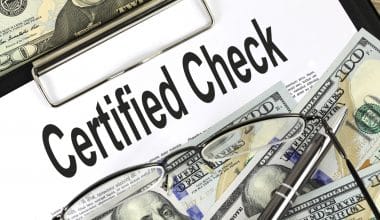It’s a litigious world everybody lives in and anyone can sue anybody or any entity or group if they believe that their rights and best interests granted by the law have been violated. As an entrepreneur, your business is pretty vulnerable to legal challenges that can be launched by any party for any reason they may cite in court.
Concerns surrounding product liability, negligence, unjust enrichment, breach of contract and express warranty and the like may all be included in the lawsuit that can be thrown your way by complainants. Government entities, too, can be an originator or legal cases against supposedly erring parties.
Being handed over a lawsuit can be a major drawback of a business like yours. It’s highly advised that you must know what it means to be sued. Most importantly, you need to know how to avoid being sued. And that’s what this feature’s all about.
What Is Business Litigation?
Business litigation is a series of legal disputes borne out of commercial and business relationships. Disputes may include business-to-business, business-to-customer, and customer-to-business interactions. It may also involve claims against companies, government, and individuals.
In short, it’s the process of facing legal actions, in courts or any quasi-judicial bodies, that affect your company. Litigation either requires you to go to court because someone sued your business, or you sue someone or their business for an action of theirs that affects your organization negatively.
Business lawsuits affect all kinds of businesses, from medical, legal, and engineering fields to the local hairdresser and shoemaker on your street. The whole business litigation process is complex and involves filing motions, discovery, administrative hearings, mediation, trial, and subsequent appeals.
How Does Litigation Affect Your Business
The most known effect of the litigation is expenses. You’ll pay your attorney, pay to file a motion, and more. The more fees you have to pay, the more money you’re spending that is supposed to be allocated to other aspects of your business such as expansions and many more.
One of the most important assets of your business is its reputation and undergoing lengthy and highly publicized litigation can damage that. People may begin to see your business as dishonest, irresponsible, or selfish. However, you can protect your assets from possible lawsuits by learning how to setup a Cook Island trust account.
Reduction in sales is also common in business litigation. When people, both current and would-be clients, view your business in a negative light, they’ll go elsewhere for their transactions. Optics is key.
Loss of investors and partners is believed to be another negative impact of litigation. While you’re losing customers, you may also lose your company’s investors and partners. You may see the supply of money flowing into your enterprise slowly dry up as important company players pull out their withholdings to seek other options.
Ways Your Business Can Avoid A Lawsuit
It’s said that it’s better to prevent your business from lawsuits and litigation than start preparing for an attorney. While there’s no surefire way to avoid being sued, these precautionary measures will help in reducing the possibility of it happening.
#1. Get An Attorney To Educate You On The Basic Laws
Hire an attorney that’ll help you understand the legal field by educating you on the legal dos and don’ts of your industry or niche. The lawyer will point out areas of your business that are vulnerable to legal issues, advise you on ways to protect your company, and spell out practical steps you can take if your business gets sued.
#2. Read, Read, And Read Agreements
How many times have you clicked on the ‘Agree And Continue’ button on websites without reading what you agree to? Probably many times. But that’s a big mistake to make.
It’s highly advised to not take the terms and conditions of any contract, transaction, or business for granted. Read them through and speak up if you see anything you don’t agree with. You may even hand the document to your attorney for better interpretation. Sometimes, the letter A doesn’t mean the letter A.
#3. Keep A Record Of All Official Agreements, Transactions, And Contracts
Always keep written records of all you do. When you have a business agreement, transaction, or contract with someone or another party, insist on documenting the agreement – even if they’re your family members, a friend that you highly trust, or even your spouse.
The benefit of this step is that it makes it difficult for anyone to make claims about what wasn’t agreed on because all evidence would be seen on paper.
There are cases where some agreements are electronic; you can take a screenshot or capture a screen video of the agreement as proof of what was agreed on. Make sure that each deal is read, interpreted, and signed by your attorney and theirs as well.
#4. Make Your Staff Understand Your Company Policies, Procedures, And The Law
You can provide a staff handbook to help your employees learn the law, policies, and procedures and perform their jobs as expected. This will help guide their actions and words to avoid doing or saying things resulting in a potential lawsuit.
Try making it part of your recruitment procedures to educate potential employees on the law and policy. Make sure that they understand and agree before giving them the role. Rewarding staff members who follow the procedures can also help in motivating others to follow suit.
#5. Handle Misunderstandings Proactively And Promptly
Sometimes, the most minute issues can result in a lawsuit. A little disagreement between your staff and an investor can get you into trouble.
You could be sued for defamation if one of your salespersons does an interview with a newspaper and calls a competitor an ‘idiot’ and jokes that he has been known to date underage girls.
But by being proactive and by pleading with that competitor and having your employee apologize, you practically reduce the possibility of your business being sued.
How can I properly handle and dispose of hazardous materials to avoid environmental lawsuits?
Proper handling and disposal of hazardous materials, such as chemicals and waste, is important to avoid environmental lawsuits. Business owners should ensure that their operations are compliant with all relevant environmental laws and regulations, and that hazardous materials are stored, handled, and disposed of in a safe and responsible manner. This may involve implementing proper training programs for employees, investing in proper storage facilities, and seeking guidance from environmental experts.
What role does crisis management play in avoiding lawsuits for my business?
Crisis management plays a crucial role in avoiding lawsuits for a business. In the event of a crisis, such as a natural disaster, data breach, or other unexpected event, businesses must have a plan in place to respond quickly and effectively. This includes having clear communication strategies, procedures for reporting incidents, and contingency plans for protecting employees, customers, and assets. Proper crisis management can help to reduce the risk of lawsuits, by preventing or minimizing harm to stakeholders and demonstrating a commitment to responsible business practices.
How can I seek professional guidance and support to reduce the risk of lawsuits for my business?
Seeking professional guidance and support can be an effective way to reduce the risk of lawsuits for your business. This may involve working with a legal advisor, insurance professional, or other expert to understand relevant laws and regulations, implement effective risk management strategies, and handle any legal disputes that may arise. Additionally, seeking support from industry groups, trade organizations, and other business networks can provide valuable resources and insights on how to reduce the risk of lawsuits and maintain compliance with relevant laws and regulations.
What steps can I take to prevent discrimination, harassment, and other workplace issues that can lead to lawsuits?
To prevent discrimination, harassment, and other workplace issues that can lead to lawsuits, businesses should implement clear policies and procedures for preventing these types of incidents. This may involve providing training and education for employees, creating an open and inclusive workplace culture, and conducting regular assessments and audits to identify and address potential risks. By promoting a safe and respectful workplace environment, businesses can reduce the risk of discrimination and harassment claims, and other related legal actions.
How can I protect my business’s intellectual property and avoid copyright or trademark infringement lawsuits?
Protecting your business’s intellectual property and avoiding copyright or trademark infringement lawsuits requires a proactive approach. This may involve registering any relevant trademarks or patents, monitoring your intellectual property for infringement, and taking action to address any infringement that is detected. Additionally, businesses should educate themselves on relevant intellectual property laws, seek the advice of legal experts, and take steps to ensure that they are using and licensing any third-party intellectual property in a responsible and legal manner.
How can I maintain accurate contracts and agreements to reduce the risk of contract disputes and lawsuits?
Maintaining accurate contracts and agreements is critical to reducing the risk of contract disputes and lawsuits. This may involve drafting clear and comprehensive contracts that set out the rights and responsibilities of all parties, regularly reviewing and updating contracts to ensure that they remain accurate and up-to-date, and seeking the advice of legal experts when necessary. Additionally, businesses should have clear and effective processes in place for resolving disputes and conflicts that may arise from contracts, such as mediation or arbitration, to reduce the risk of legal action.
Conclusion
Businesses face different risks like the possibility of possibly being forced to answer legal allegations in court. Lawsuits can impact your company, and it often begins with a damaged business image to loss of sales, business partners, investors, and more. While you may not be able to completely shield your business from being sued, you can take preventive measures to reduce the possibility of it from happening.
Related Articles
- REAL ESTATE LAW FIRM: Best US Practices & Everything You Should Know (Best Picks)
- Subscription Agreement: Top 7+ Subscription Agreement Templates to help you (+ Detailed Guide)
- Personal Injury Lawyer: Why You Need a PI Attorney
- Purchase Agreement: Real Estate Buy and Sell Contract
- Rent To Own Homes: How To Rent To Own Homes






